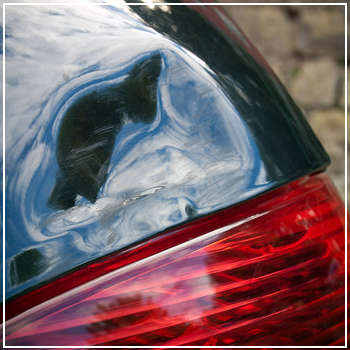 Another vehicle hits you from behind, denting your bumper and trunk. After you’ve dusted yourself off, checked the safety of your passengers and exchanged insurance information, you find that the car still drives fine. Yet, does that mean your car should stay on the road without a diagnostics test? Consider these points.
Another vehicle hits you from behind, denting your bumper and trunk. After you’ve dusted yourself off, checked the safety of your passengers and exchanged insurance information, you find that the car still drives fine. Yet, does that mean your car should stay on the road without a diagnostics test? Consider these points.
Financial Concerns
What happens when you don’t own the car? When you’re still paying off an auto loan, the bank officially holds the title. As such, while many drivers might think about keeping the car in its current state on the road, your financial obligations leave you with no choice. Because the bank or leasing company wants to keep its investment in peak condition, they expect you to fix the vehicle. As a consequence, you may be charged with insurance fraud if you pocket a check reimbursing you for damages. In violation of your lease, you’ll be expected to have all repairs made when it comes time to turn the car in.
Your insurance carrier also keeps a record of the incident and your lack of action. As a result, if you get into another accident down the road, your carrier often deducts the pre-existing damage from any future settlement they award you.
Also keep in mind that, even if you don’t work with your insurer in this instance, the damage eventually impacts the car’s resale value. In addition, many buyers may be hesitant to purchase a vehicle in need of significant repairs.
Damage Isn’t Always Visible
Unfortunately, even after a fender-bender, a majority of the damage remains unseen. For instance, what appears to be a simple dent could end up being far worse, affecting various safety features.
It is a common misconception that if damage is purely cosmetic, insurance won’t cover repairs. Yet, especially if your bumper or light gets damaged, your car might not be drivable. Ask yourself the following questions:
- Does the driver’s side mirror let you see behind the vehicle?
- Is the hood buckled to the point it flies up as you drive?
- Do the door handles function from both the inside and outside?
- Can the doors open and close correctly?
- Do you smell or see antifreeze and other fluids leaking out?
- Are all of your wheels aligned?
- Does the windshield show damage beyond a few chips or cracks?
- Is the bumper hanging or are other parts hanging from it?
- Do all lights work?
If you can answer “no” to more than one of the above questions, your vehicle should not be out on the road, unless you get repairs done first.
Safety Issues
Your car might be able to physically move from one point to another, but if it can’t pass a safety inspection, there’s a strong chance you’ll get pulled over. Typically, if your car is swerving, seems to have a high level of or dark-colored emissions or if its headlamps aren’t working, you could get a ticket.
Headlamps and tail lamps pose a hazard to both your car and other motorists:
- If a lamp is broken, your car’s visibility decreases, making it harder for others to see you.
- Broken lenses also allow moisture into your car’s system, which can rust parts and cause bulbs to fail prematurely.
- Accidents can jostle your headlamps, preventing them from aiming in the right direction. Thus, if you drive at night, you could potentially blind other drivers or will be able to see clearly in front of you.
If it looks like your car won’t pass a safety inspection, keep it at home until you can schedule repairs.
Whether you’re looking to get damage from an accident examined or need repairs made, turn to DaSilva’s Auto Body after a collision. To make an appointment, give our Naugatuck location a call today.




